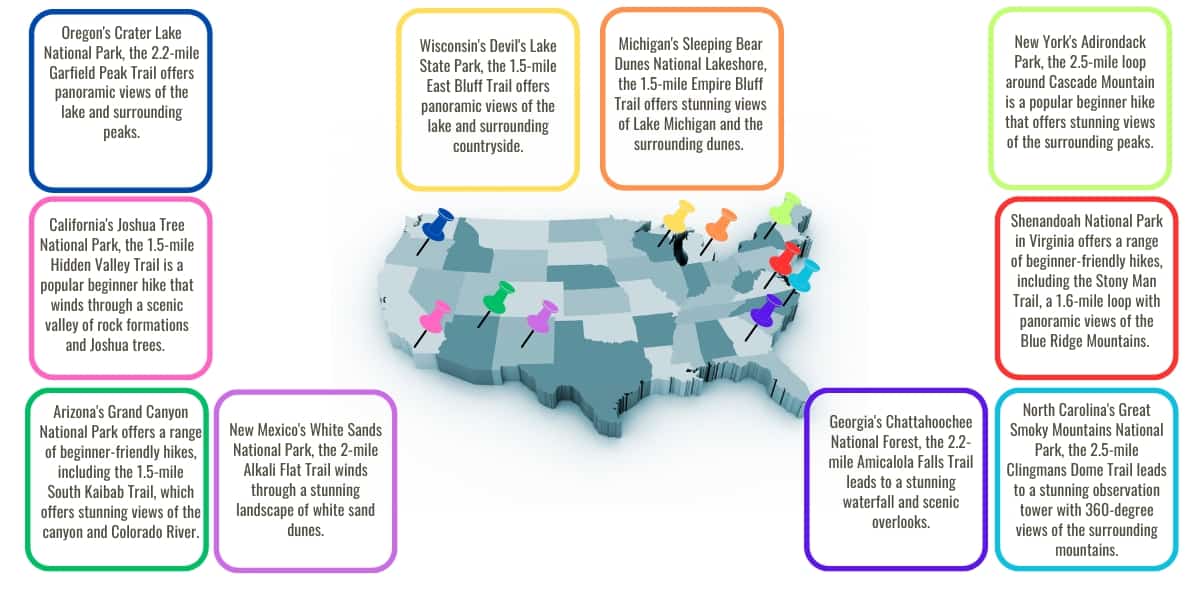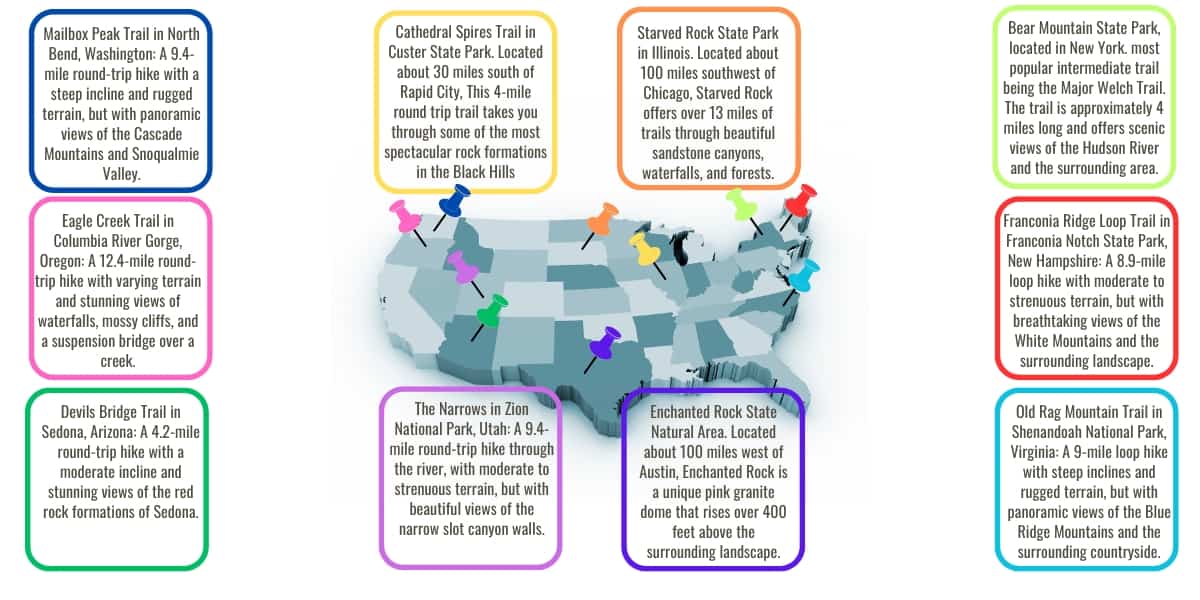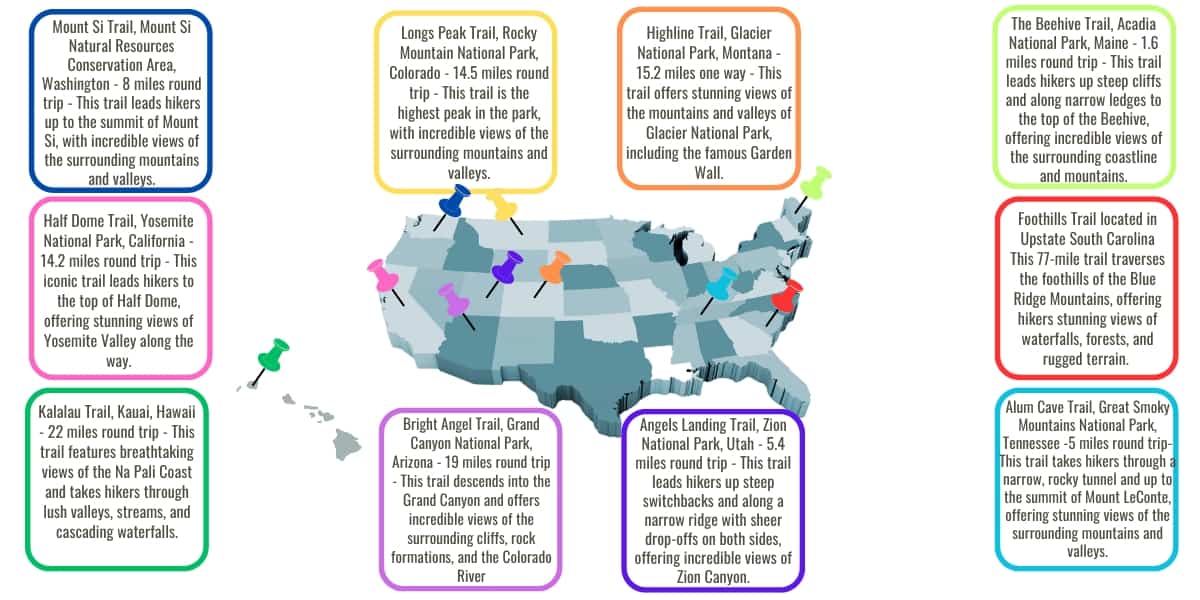Best Hikes For Every Level
Best Hikes For Every Level
Are you a camper or full-time RVer looking for a way to stay active, we’ll cover the best hikes for every level of experience.
Hiking is an excellent way to explore the natural beauty of your surroundings, challenge yourself physically, and improve your mental health.
We’ll explore the many benefits of hiking for campers and full-time RVers, including its ability to improve cardiovascular health, build strength and endurance, reduce stress and anxiety, boost mood and self-esteem, enhance creativity and cognitive function, and improve sleep quality.
Plus, we’ll provide tips and advice for finding the best hiking trails near your campsite or RV park and how to prepare for a safe and enjoyable hike.
So, whether you’re looking for a challenging adventure or a leisurely stroll through nature, hiking is an excellent activity that offers something for every camper and full-time RVer. Get ready to lace up your hiking boots and hit the trail for a fun and rewarding outdoor experience!
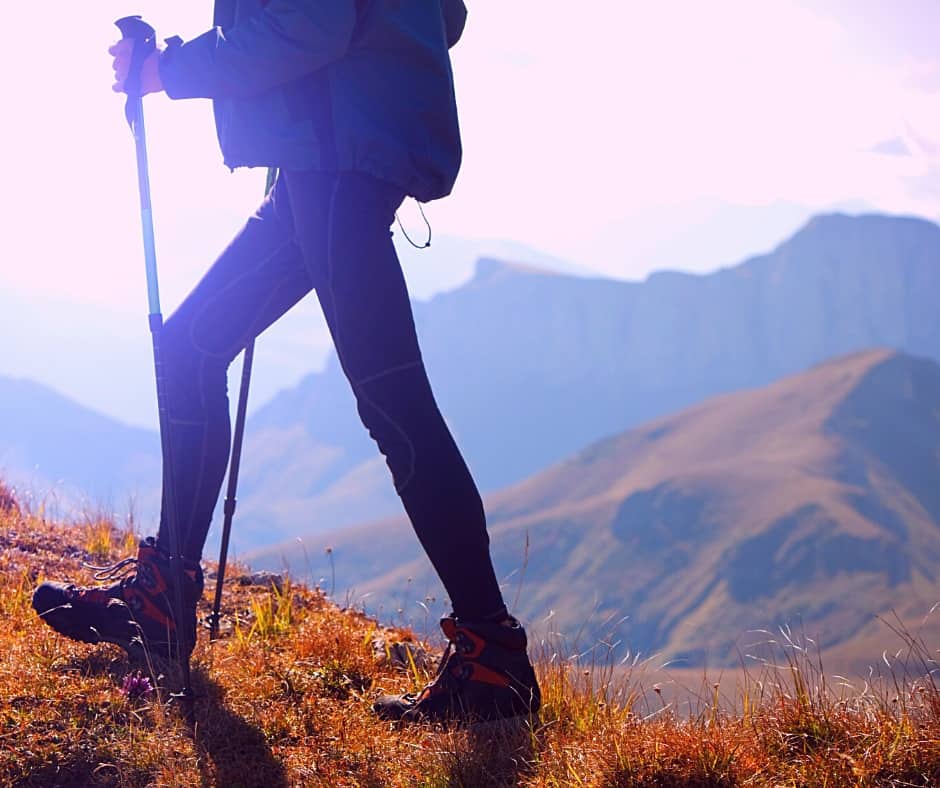
Hiking is more than just a fun outdoor activity
It’s a powerful way to improve both your physical and mental health.
Below are some of the benefits of hiking that make it an essential activity for everyone.

Physical Health Benefits of Hiking:
a. Improves Cardiovascular Health:
It’s a great form of cardiovascular exercise that gets your heart pumping and strengthens your cardiovascular system. Hiking regularly can lower your risk of heart disease, stroke, and other cardiovascular problems.
b. Increases Endurance and Stamina:
Hiking is an excellent way to build endurance and stamina. Over time, you’ll be able to hike longer distances and more challenging terrains.
c. Builds Strength and Muscle:
It uses a range of muscles, including your core, legs, and upper body. Regular hiking can help build and tone muscles, improve posture, and reduce the risk of injuries.
d. Promotes Weight Loss and Management:
Hiking is a great way to burn calories and lose weight. The more challenging the hike, the more calories you burn.
Mental Health Benefits of Hiking:
a. Reduces Stress and Anxiety – Hiking is an excellent way to reduce stress and anxiety. Being in nature, away from the hustle and bustle of everyday life, can be incredibly calming and relaxing.
b. Boosts Mood and Self-Esteem – Hiking releases endorphins, the “feel-good” hormones that can boost your mood and self-esteem. Spending time in nature can also reduce symptoms of depression and anxiety.
c. Enhances Creativity and Cognitive Function – Hiking can help clear your mind and enhance creativity. It’s also been shown to improve cognitive function, including memory and attention span.
d. Improves Sleep – Hiking can help improve sleep quality and quantity. Exposure to natural light and physical activity during the day can regulate your sleep-wake cycle and help you sleep better at night.
Choosing the right hike is essential for ensuring a safe and enjoyable outdoor experience. Whether you’re a beginner or an experienced hiker, it’s important to select a trail that matches your level of experience, fitness, and interests. Here are some tips for choosing the right hike for each level of experience.
Beginner Hikers
If you’re new to hiking, it’s best to start with easy, well-marked trails that are not too steep or rugged. Look for trails with clear signage and established routes. Consider hiking in a group or with an experienced guide who can help you navigate the terrain and provide helpful tips.
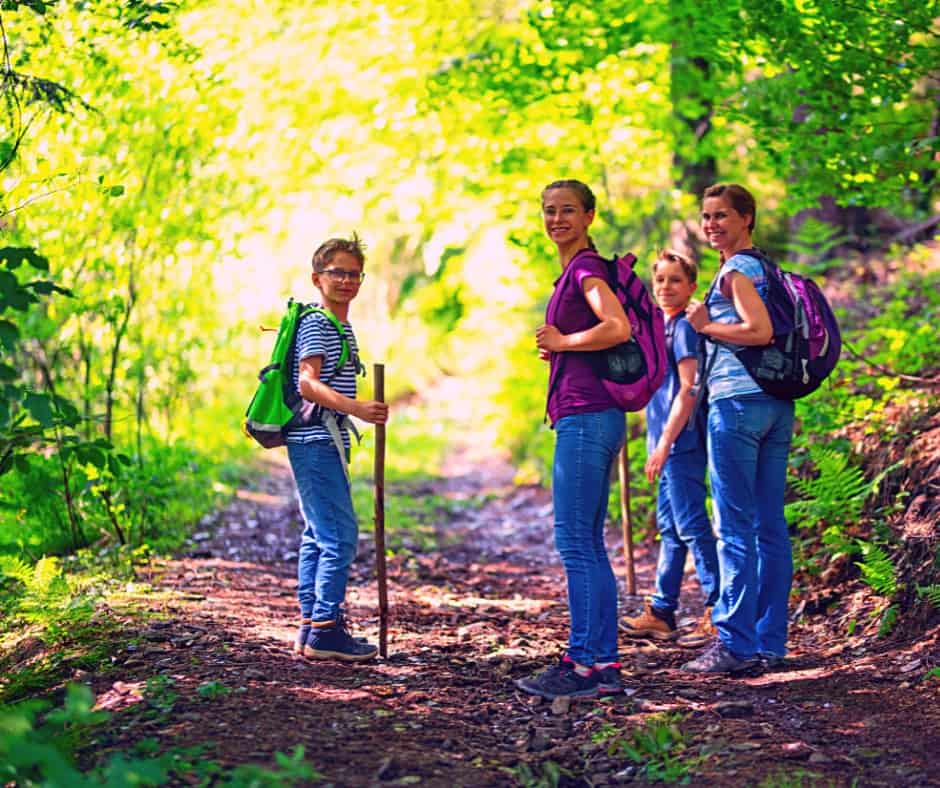
Intermediate Hikers
If you’re an intermediate hiker, you may want to try more challenging trails that involve longer distances, steeper inclines, and rougher terrain. Look for trails that offer scenic views, waterfalls, or other natural landmarks. Be sure to bring plenty of water and snacks, wear sturdy shoes, and carry a map and compass in case you lose your way.
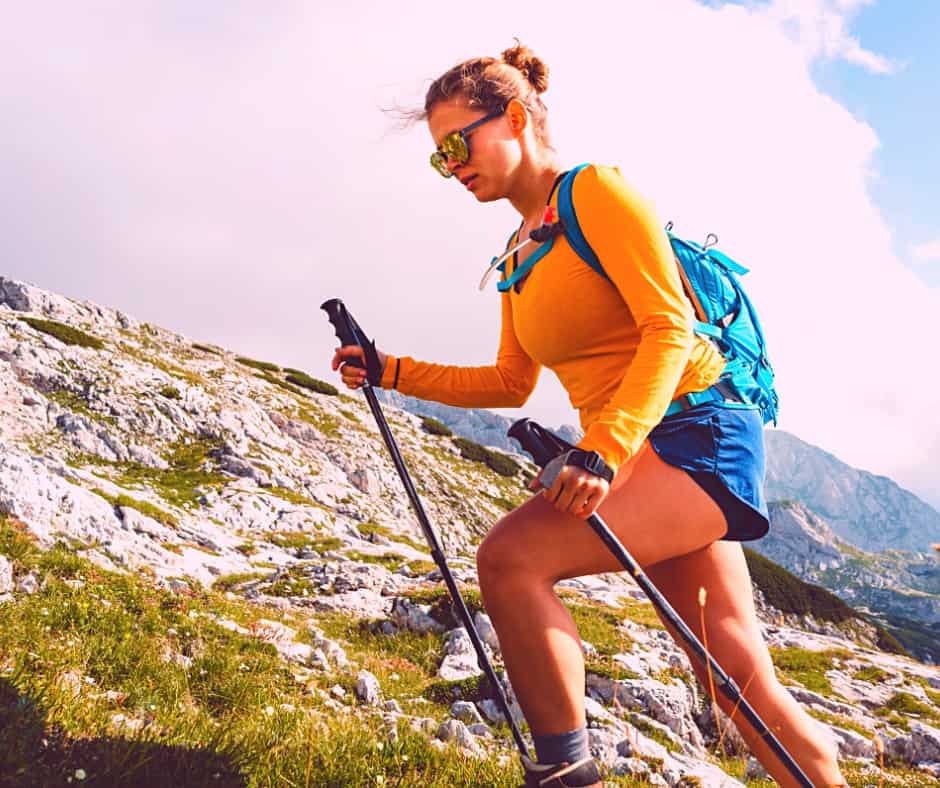
Advanced Hikers
If you’re an experienced hiker, you may want to try more strenuous hikes that involve steep climbs, rugged terrain, and off-trail exploration. Look for trails that offer unique challenges, such as high-altitude summits or backcountry routes. Be sure to research the trail and check weather conditions before you go, bring a first aid kit and emergency supplies, and tell someone where you’re going and when you plan to return.
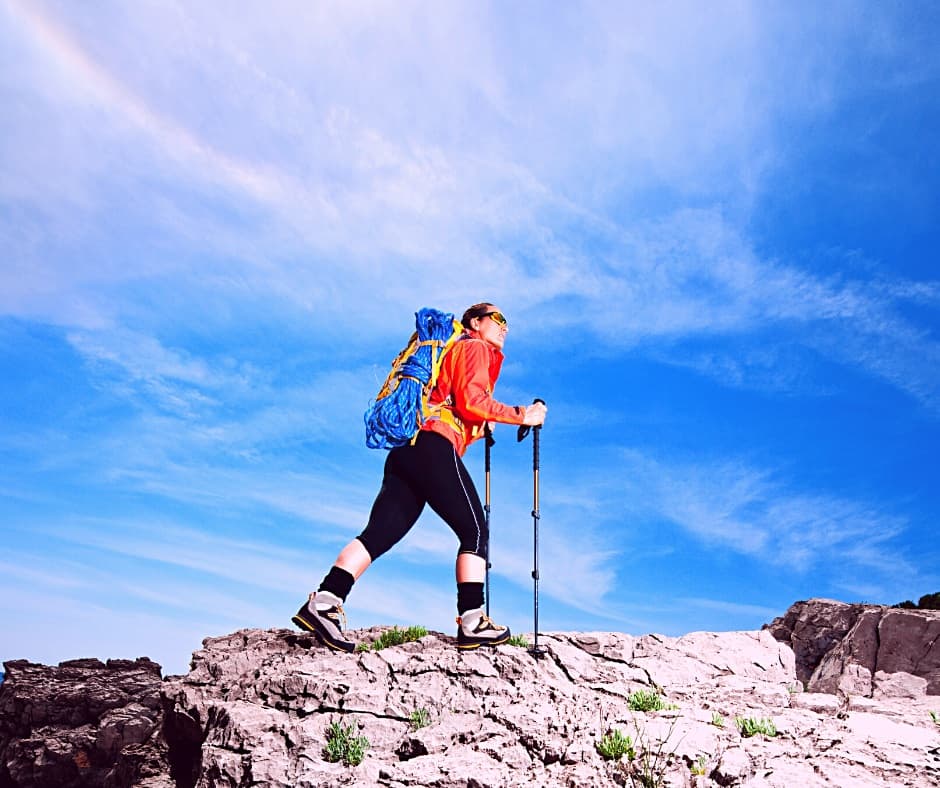
No matter what level of experience you have, it’s essential to listen to your body and know your limits. Don’t push yourself too hard or take unnecessary risks. Always stay on established trails and respect the natural environment by following the Leave No Trace principles.
Choosing the right hike is crucial for ensuring a safe and enjoyable outdoor experience. Consider your level of experience, fitness, and interests when selecting a trail, and be sure to prepare adequately for your hike. With the right preparation and mindset, hiking can be a fun and rewarding way to explore the great outdoors and stay healthy and fit.
Beginner Hikes
A beginner hike is a trail that is easy to navigate and has minimal elevation gain, making it a great option for hikers who are new to the activity. These trails are typically well-marked and maintained, and often offer scenic views or points of interest along the way.
Beginner hikes are ideal for those who are just starting out with hiking, or for those who are looking for a more leisurely outdoor activity. They offer a low-impact way to get outside and enjoy nature, without the need for extensive preparation or specialized equipment.
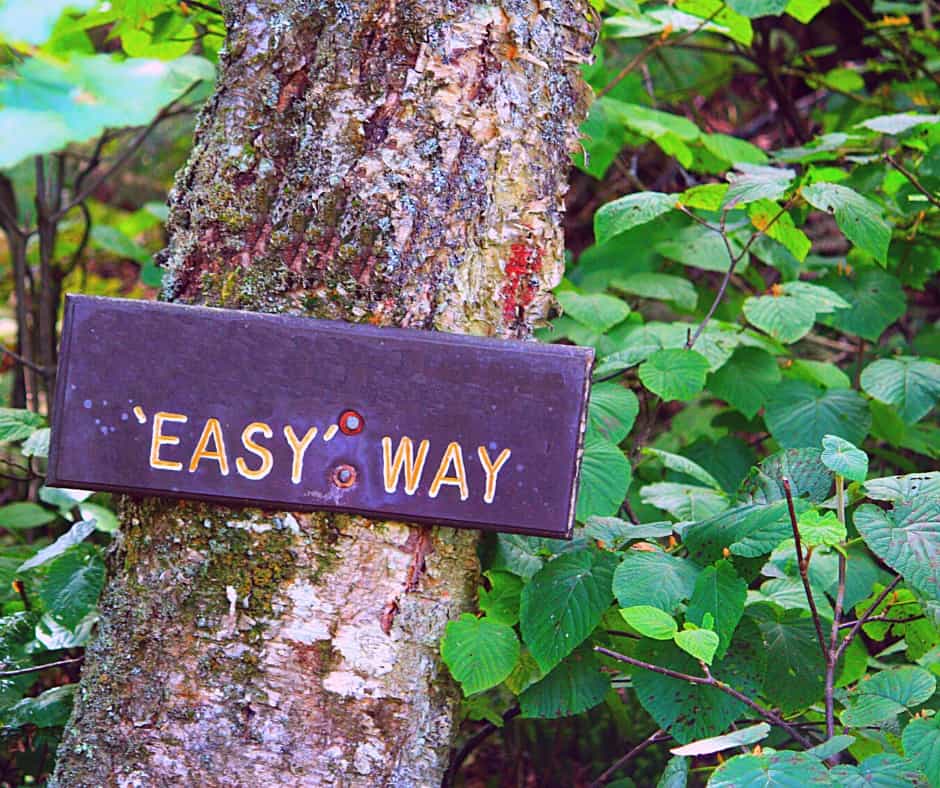
Some common features of beginner hikes include:
Short distance: Beginner hikes are typically shorter in length, usually between 1-3 miles. This allows hikers to complete the trail in a shorter amount of time, without feeling overwhelmed or exhausted.
Low elevation gain: Beginner hikes have minimal elevation gain, usually less than 500 feet. This means that hikers won’t have to climb steep hills or navigate rocky terrain.
Easy terrain: Beginner hikes have easy terrain that is well-maintained and free of obstacles. The trail may be paved, or it may be a wide, flat dirt path.
Accessible amenities: Beginner hikes often have accessible amenities, such as restrooms, picnic areas, and parking lots. This makes it easy for hikers to prepare for their hike and take breaks along the way.
Some examples of beginner hikes include:
Nature trails: Many parks and nature preserves have short, easy nature trails that are perfect for beginners. These trails are often paved and feature interpretive signs or exhibits.
Waterfall hikes: Hiking to a waterfall is a popular beginner activity. The trail is usually short and well-maintained, and the reward at the end is a beautiful waterfall.
Scenic overlooks: Many parks have short hikes to scenic overlooks, where hikers can enjoy a beautiful view without having to climb steep hills.
New To Hiking?
It can be challenging to know where to start. Fortunately, there are plenty of beginner-friendly trails to choose from in national parks, state parks, and other scenic destinations across the country.
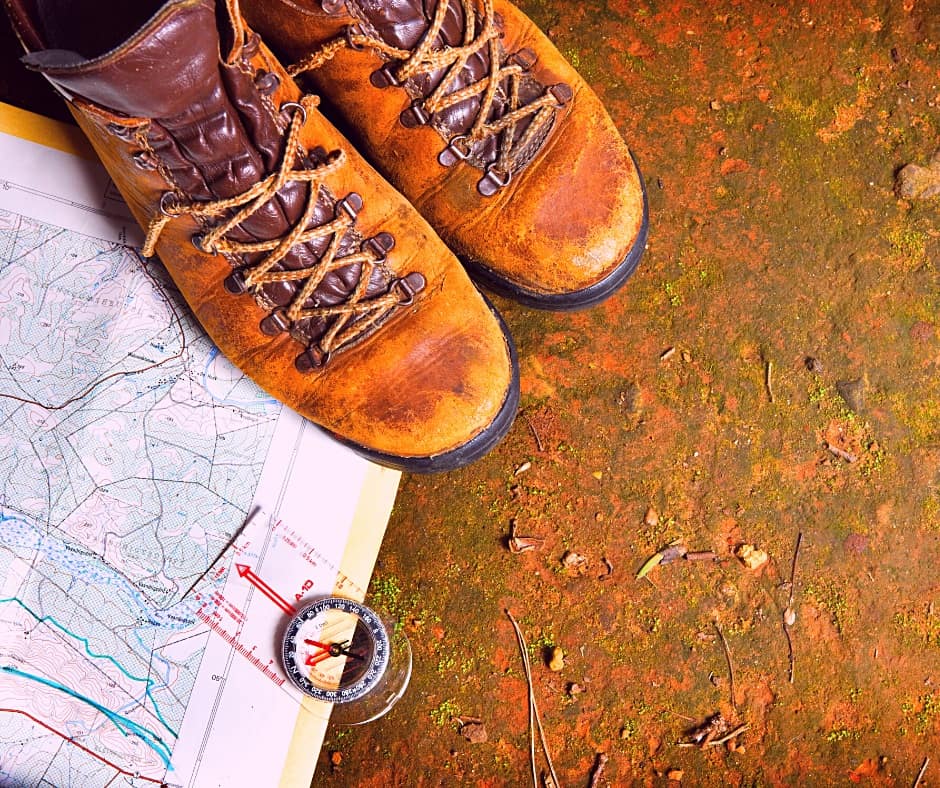
Here are some examples of beginner hikes in different regions:
Preparation Is Key
If you’re new to hiking, it’s important to prepare adequately for your outdoor adventure. Here are some tips for beginners on what to bring, how to prepare, and what to expect. It’s important to bring the right gear and supplies to ensure a safe and comfortable hiking experience. Here are some essential items to consider bringing on your hike.
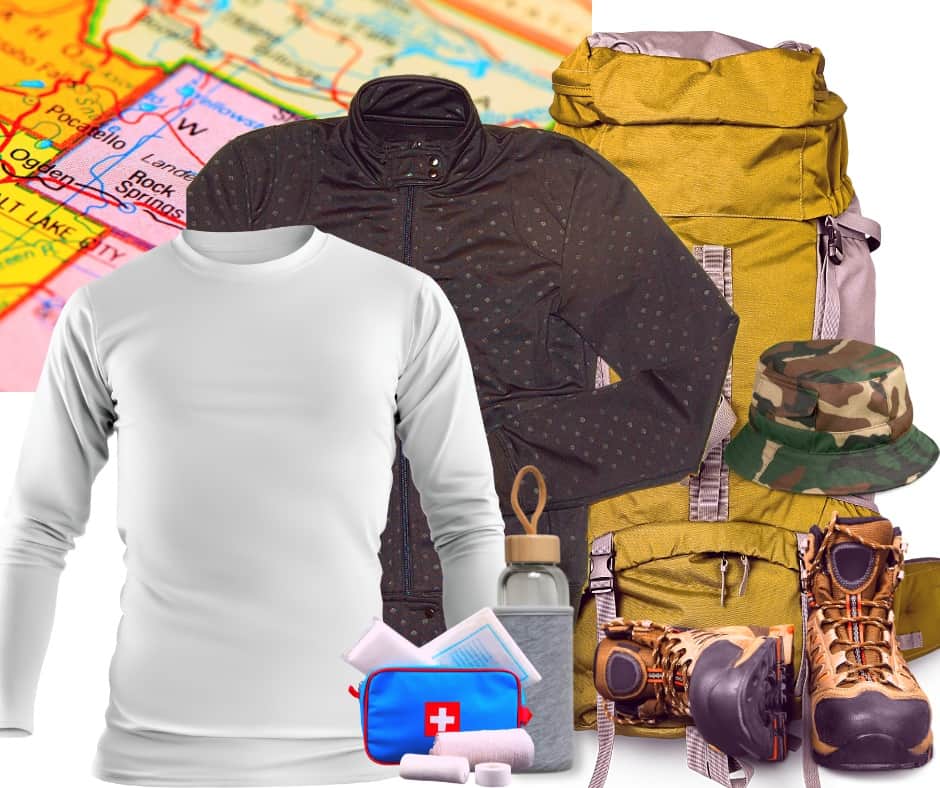
What to Bring:
It’s important to bring the right gear and supplies to ensure a safe and comfortable hiking experience. Here are some essential items to consider bringing on your hike:
Sturdy hiking shoes or boots / Comfortable clothing appropriate for the weather / Sunscreen and a hat / Plenty of water and snacks / A map and compass, or a GPS device / A first aid kit / Insect repellent / A backpack to carry all your gear
How To Prepare:
Before you hit the trail, it’s important to prepare yourself mentally and physically for the hike. Here are some tips for getting ready:
Start with a shorter, easier hike to build up your endurance and confidence. Do some research on the trail you plan to hike, including the distance, elevation gain, and difficulty level. Check the weather forecast and plan your clothing and gear accordingly. Tell someone where you’re going and when you plan to return. Learn the basics of hiking safety, including how to read a map and compass, and what to do in case of an emergency.
What To Expect:
Hiking can be a challenging but rewarding experience, especially for beginners.
Here are some things to keep in mind:
Take your time and enjoy the scenery.
Don’t push yourself too hard – it’s okay to take breaks and rest when you need to
Stay on established trails and follow the Leave No Trace principles to respect the natural environment.
Be aware of your surroundings and watch out for potential hazards, such as loose rocks or slippery terrain.
Listen to your body and know your limits – if you feel tired or uncomfortable, it’s okay to turn back.
Intermediate Hikes
An intermediate hike is generally considered to be a trail that is more challenging than a beginner hike but not as difficult as an advanced hike. They will typically have moderate elevation gains, varying terrain, and longer distances than beginner hikes.
They also require a bit more experience and physical fitness than beginner hikes.
Intermediate hikes may have steeper inclines, uneven terrain, and rocky or loose surfaces, which require more careful footing and balance.
These hikes may also have longer distances and may take several hours to complete. Intermediate hikes may require a bit more planning and preparation than beginner hikes, but they are still accessible to most hikers who are in good physical shape and have some hiking experience.
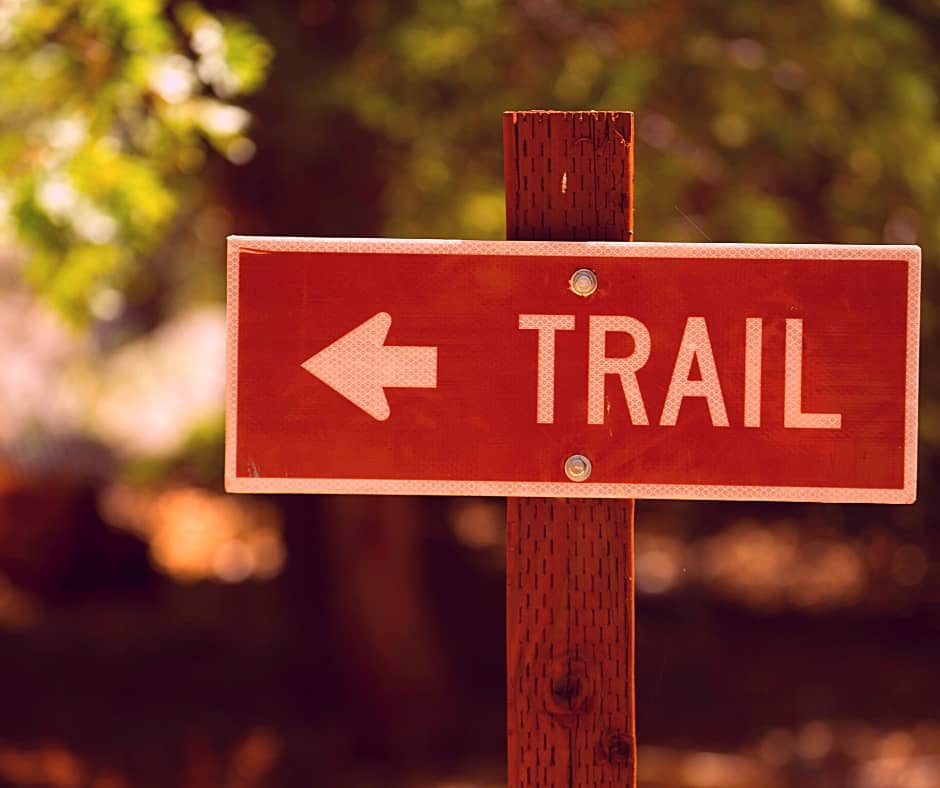
Examples of intermediate hikes include:
Angels Landing Trail in Zion National Park, Utah: A 5.4-mile round-trip hike with a steep incline and narrow trail sections, but with stunning views of the Zion Canyon.
Bright Angel Trail in Grand Canyon National Park, Arizona: A 12-mile round-trip hike with a moderate incline, but with beautiful views of the Grand Canyon.
The Precipice Trail in Acadia National Park, Maine: A 2.9-mile round-trip hike with steep inclines and exposed cliffs, but with breathtaking views of the ocean and surrounding landscape.
Intermediate hikes offer a great balance between challenge and accessibility, providing hikers with a bit more of a physical and mental challenge while still being achievable for most people. If you are new to intermediate hikes, it’s important to research and plan, bring the right gear, and take breaks as needed. With proper preparation and a positive mindset, intermediate hikes can be an enjoyable and rewarding experience.
Intermediate hikes can be found in many different regions, each offering their unique challenges and beautiful scenery.
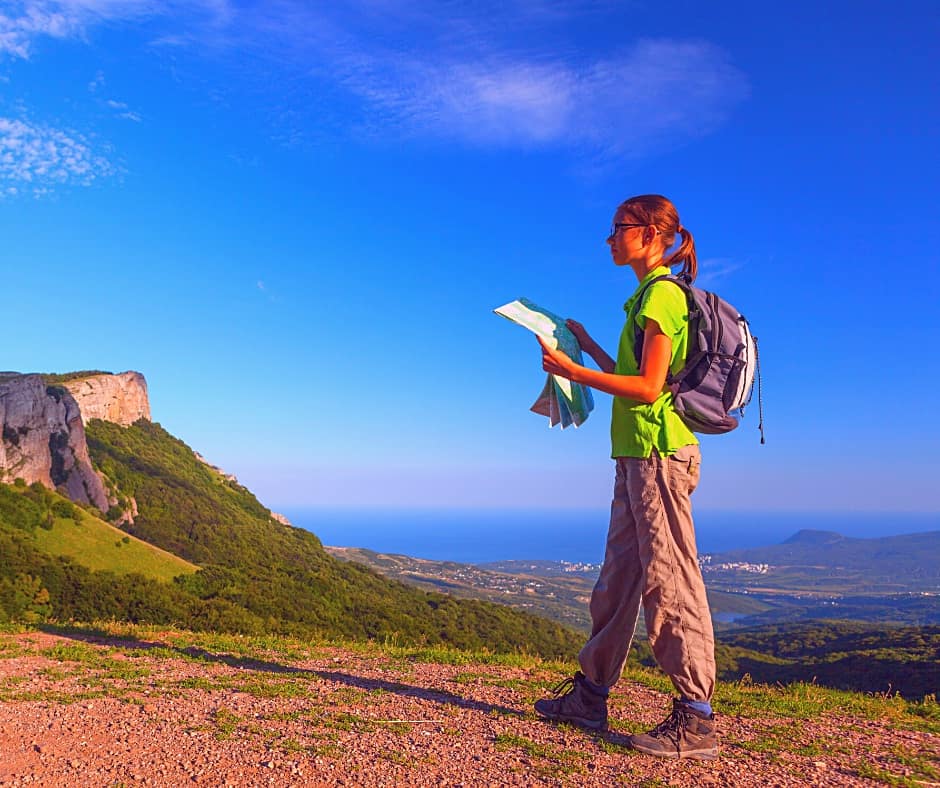
Here are some examples of intermediate hikes in different regions:
If you are new to intermediate hikes, it’s important to research and plan ahead, bring the right gear, and take breaks as needed. With proper preparation and a positive mindset, intermediate hikes can be an enjoyable and rewarding experience in any region.
Intermediate hikers have already completed some beginner hikes and are ready to take on a more challenging trail. However, it’s important to prepare accordingly and be mindful of safety measures.

Here are some tips for intermediate hikers:
Progress gradually to the next level:
Intermediate hikers should aim to increase the difficulty of their hikes gradually. Start with hikes that have moderate inclines and then gradually move on to more challenging terrain. Don’t attempt a difficult hike all at once; it’s important to build up strength and stamina over time.
Bring appropriate gear:
As hikes get more challenging, the gear required changes too. Invest in proper hiking boots that support your ankles and have good traction. Bring a backpack with plenty of water, food, and extra layers of clothing. It’s also essential to have a map and a compass, or a GPS device.
Stay safe:
Safety is always a top priority when hiking. Before heading out, check the weather forecast and plan accordingly. Always let someone know where you’re going and when you plan to return. If hiking in a group, stay together and keep an eye out for one another. If hiking alone, be mindful of your surroundings and keep your wits about you. If an emergency arises, stay calm and use your emergency kit or cell phone to call for help.
Take breaks:
Intermediate hikes can be challenging, so it’s important to take breaks along the way. Take time to rest, hydrate, and refuel. Stretching and doing a few exercises can also help alleviate soreness and fatigue.
Learn from others:
Hiking with more experienced hikers is a great way to learn new skills and techniques. Ask questions, observe their techniques, and learn from their experiences. Joining a hiking club or group can also provide opportunities to meet other hikers and learn from their experiences.
With these tips, intermediate hikers can enjoy a challenging and rewarding experience on the trail. Remember to prepare, be safe, and enjoy the beauty of nature.
Advanced Hikes
Advanced hikes are reserved for experienced hikers who have already mastered the intermediate level of hiking. These hikes require physical endurance, technical skills, and a good level of mental preparation.
These hikes typically have steep inclines, rocky terrain, and/or challenging weather conditions. They often require multi-day trips with camping and backcountry navigation.
Examples of advanced hikes include high-altitude treks, long-distance thru-hikes, and technical climbing routes.
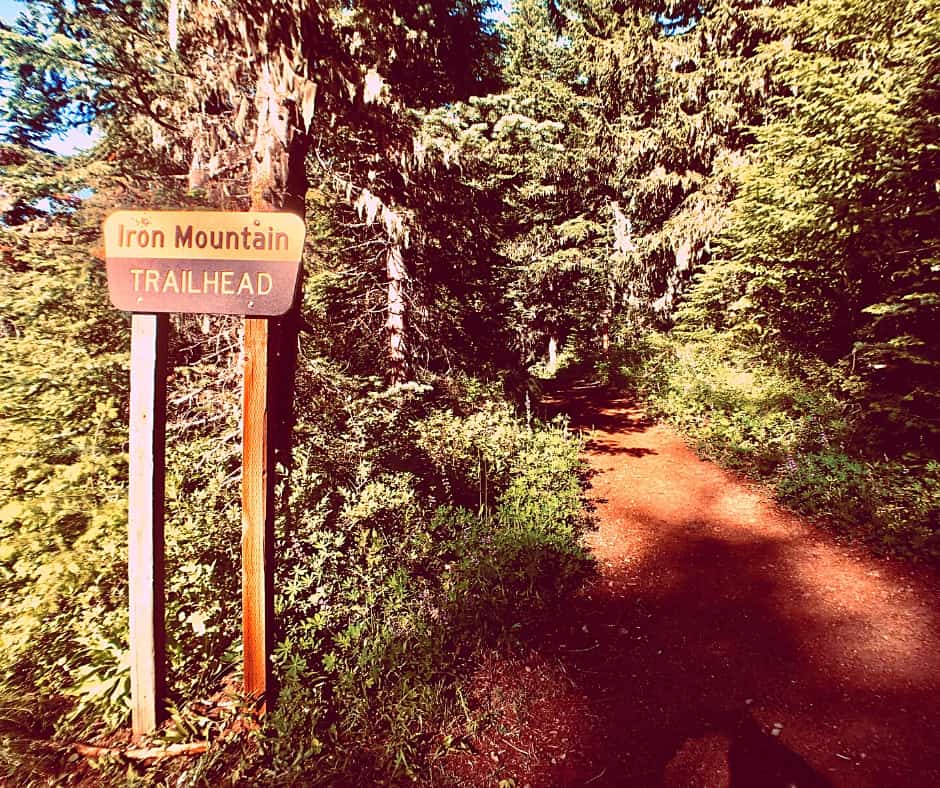
It requires a higher level of physical fitness and endurance. They can range from 10 to 20 miles or more in length, with elevation gains of thousands of feet. Some advanced hikes may require several days or even weeks to complete, such as thru-hiking the Appalachian Trail, Pacific Crest Trail, or Continental Divide Trail. Other advanced hikes may involve technical climbing, such as scaling a peak like Mount Rainier or Denali.
Advanced hikes also require a good level of mental preparation. Hikers must be able to navigate the trail, read maps and compasses, and have a good sense of direction. They must be able to stay calm in difficult situations and make informed decisions. Advanced hikes often take hikers into remote wilderness areas where they must be self-sufficient and able to handle any emergencies that may arise.
In summary, advanced hikes are physically and mentally demanding and require a high level of experience and preparation. If you are considering taking on an advanced hike, it’s important to train properly, research and plan ahead, and be mindful of safety measures. With the right mindset and preparation, advanced hikes can provide an unforgettable and life-changing experience.
Here are some examples of advanced hikes in different regions:
These are just a few examples of the many advanced hikes that can be found in different regions. Before attempting an advanced hike, be sure to research the route thoroughly, train properly, and be mindful of safety measures. With the right preparation and experience, advanced hikes can provide a thrilling and unforgettable adventure.
Advanced hikes require a high level of physical fitness, technical skills, and mental preparation. Here are some tips for advanced hikers:
Train properly: Advanced hikes require a high level of physical fitness. To prepare for an advanced hike, incorporate strength training, cardio workouts, and hiking-specific exercises into your training routine. Gradually increase the intensity and duration of your workouts to build endurance and stamina.
Research and plan ahead: Before attempting an advanced hike, research the route thoroughly. Know the trail conditions, weather patterns, and potential hazards. Plan your route carefully, and bring a detailed map and compass. Make sure you have a backup plan in case of emergencies or unexpected changes in weather or trail conditions.
Choose the right gear
Advanced hikes require specialized gear that can withstand harsh weather conditions and rugged terrain. Invest in high-quality hiking boots, a sturdy backpack, a lightweight tent, and a warm sleeping bag. Pack enough food and water, as well as emergency supplies like a first aid kit and a fire starter.

Be mindful of safety measures: Advanced hikes can be risky, so it’s important to take safety measures seriously. Always let someone know where you’re going and when you plan to return. Bring a GPS device or satellite communicator for emergencies. Know basic first aid skills and how to handle common injuries. Avoid hiking alone, especially in remote areas.
Practice Leave No Trace principles: Advanced hikes often take hikers into remote wilderness areas, so it’s important to minimize your impact on the environment. Practice Leave No Trace principles by packing out all your trash, avoiding wildlife disturbances, and staying on designated trails.
In summary, advanced hikes require a high level of preparation and experience. To prepare for an advanced hike, train properly, research and plan ahead, choose the right gear, be mindful of safety measures, and practice Leave No Trace principles. With the right preparation and mindset, advanced hikes can provide an unforgettable and rewarding experience.
Conclusion
Hiking is an excellent way to explore nature, challenge yourself, and improve your physical and mental health.
Whether you are a beginner or an experienced hiker, there are countless trails and hikes available for you to enjoy. By choosing the right hike for your level of experience and following the necessary safety precautions, you can have an unforgettable adventure and create lasting memories.
Remember to always prepare, pack the appropriate gear, and stay hydrated on the trail. Happy hiking!
Related Blogs

RVing in National Parks
RVing in National Parks If you’re an outdoor enthusiast looking to explore America’s natural beauty, RVing in the National Parks is an excellent way to

Easy RV Workouts
Easy RV Workouts Are you a proud owner of an RV? Whether you’re a full-time RVer or just enjoy the occasional road trip, it’s important
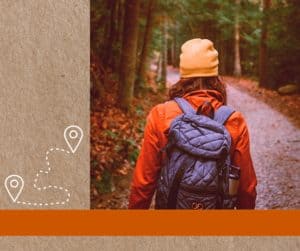
Best Hikes For Every Level
Best Hikes For Every Level Best Hikes For Every Level Are you a camper or full-time RVer looking for a way to stay active, we’ll

